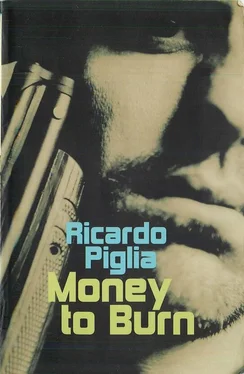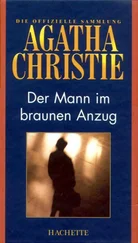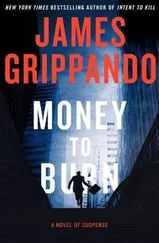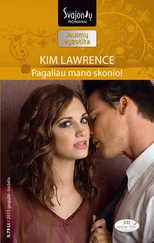Ricardo Piglia - Money to Burn
Здесь есть возможность читать онлайн «Ricardo Piglia - Money to Burn» весь текст электронной книги совершенно бесплатно (целиком полную версию без сокращений). В некоторых случаях можно слушать аудио, скачать через торрент в формате fb2 и присутствует краткое содержание. Год выпуска: 2004, Издательство: Granta UK, Жанр: Современная проза, на английском языке. Описание произведения, (предисловие) а так же отзывы посетителей доступны на портале библиотеки ЛибКат.
- Название:Money to Burn
- Автор:
- Издательство:Granta UK
- Жанр:
- Год:2004
- ISBN:нет данных
- Рейтинг книги:5 / 5. Голосов: 1
-
Избранное:Добавить в избранное
- Отзывы:
-
Ваша оценка:
- 100
- 1
- 2
- 3
- 4
- 5
Money to Burn: краткое содержание, описание и аннотация
Предлагаем к чтению аннотацию, описание, краткое содержание или предисловие (зависит от того, что написал сам автор книги «Money to Burn»). Если вы не нашли необходимую информацию о книге — напишите в комментариях, мы постараемся отыскать её.
Money to Burn — читать онлайн бесплатно полную книгу (весь текст) целиком
Ниже представлен текст книги, разбитый по страницам. Система сохранения места последней прочитанной страницы, позволяет с удобством читать онлайн бесплатно книгу «Money to Burn», без необходимости каждый раз заново искать на чём Вы остановились. Поставьте закладку, и сможете в любой момент перейти на страницу, на которой закончили чтение.
Интервал:
Закладка:
Every five minutes (approximately) the police employed microphones to intimidate them with a deafening blast, part of a psychological operation designed to make the pressure unbearable, while the technical corps of the Uruguayan State central intelligence service, using transmitters supplied by the SODRE,{20} listened in (despite the interference on the line) on the conversations of the besieged, courtesy of the three microphones hidden in the apartment only hours before it was surrounded.
'There's no death penalty in this country.'
'The death penalty… I can't understand the idiot who'd allow himself to be caught so that he could be strapped to a chair and cooked…'
'You can be caught by them without meaning to be.'
'Never.'
'They seized Valerga when he was asleep and when they grabbed Beretta, they tackled him so he couldn't escape.'
'There are only four methods of execution: hanging, firing squad, gas chamber and electric chair. You can wait ages to die. Sometimes as much as a minute, a minute and a half… Hold your breath and imagine it. The chair itself is pretty sinister: the smoke rising from your burnt skin has an unforgettable odour, it smells of roasting meat. They attach electrodes to the head and legs of the condemned man. You don't see flames, instead you see a change in the skin's colouring as it turns maroon, then black.'
'And in Argentina, what's the system there? D'you know what it is? A bullet in the balls!'
Dawn broke slowly and ponderously. To the drop in temperature was added the inconvenience of increasingly annoying rainfall. The firing continued spasmodically. When it was properly daylight the police, taking careful precautions, and over a period of two hours, were able to evacuate the tenants living opposite and below them, who'd found themselves trapped. The operation was covered by a fierce round of gunfire from the position overlooking the central well.
The Fire Brigade's largest ladder was propped against the balcony on the second floor, from where the residents could descend, their backs to the street, in the main terrified families who had suffered a situation of extreme anguish for a number of hours. They could observe housewives, their cheeks pale with fear, one of whom was begging that her miniature pooch, a Pekinese, be likewise saved and, together with her owner, placed in a police station, preferably the one on Maldonado Street.
'My daughter and I,' according to Señora Vélez (broadcasting on Radio Carve), 'spent all our time at the far end of the kitchen where, through the plumbing pipes, we heard the lads shouting and guffawing. They're hunting them down like rats… It upset me to hear that, you don't kill a Christian like that…'
'It seems to me they're all dead,' said Señor Antúnez from the flat next door to number nine. 'It's some time since we heard shouts and guffaws. We're all right, but it was like living through the Second World War.'
Once the adjacent apartments were emptied, the police prepared for the final offensive. Their first move was to order that the running water be cut off, after which came the electricity. Then they employed that super-well-known ruse of a 'Molotov cocktail', mixing them in empty bottles requisitioned from the corner bar. The idea was to throw them into flat number nine, seeking to start a fire that way. Once again, their efforts were in vain, as they were immediately caught and extinguished by the gunmen, who soaked blankets in the bath filled with water and succeeded in putting the fire out without allowing it to spread. Once again and on the spur of the moment, instead of becoming discouraged, the Argentines redoubled their efforts while the police intensified the gunfire in order to keep them busy.
Whichever way you looked at it, the gunmen's situation had become critical. By taking over flat number three (opposite on the second floor, very close to number nine), the police succeeded in opening up a fresh angle of fire via a skylight, a post occupied by Commissioner Silva and Sergeant Mario Martinez from the Robbery and Larceny Division, the skilled Thompson machine-gun operator. They took it in turns to fire and to reload the weapon. This new breach, which opened a tiny angle with access to the bedroom at number nine, was immediately covered by the bandits.
At eight in the morning, the Argentines resumed shooting their.45 pistols and the machine-guns resumed their response to every round fired by the police. They could only move around in an extremely restricted area of the apartment, as any attempt was blocked by the elite operatives.
At the same time, a special agent from 12a, Aranguren, twenty-one years old, married, and a father of two, together with agent Julio C. Andrada, another youth of twenty-five, were both assigned to the flat, to cover the door giving on to the corridor, a scant three metres away from the gunmen's own front door. One of the malefactors (Dorda) hurled himself into the corridor and, through the half-open door of the adjacent flat, released another burst of machine-gunfire. Aranguren fell where he was and, as they lowered him out of the window and down on to the street, Andrada, a plainclothes secret policeman, dressed in brown protective clothing, was also wounded and lay where he fell on the kitchen floor of the flat next door, sheltered beneath the sink and far from the reach of the criminals.
Finally, with the building plans in hand, a new method was sought: that of employing members of the fire brigade to perforate the floor of the upstairs flat leading into flat number nine and attack those already under siege from above.
Several policemen climbed up the extending ladder to the second floor where the firefighters had propped it against the window with considerable precision. In order to cover the operation from flat number eleven, a stipple of fire hailed in through the skylights: ditto through the window giving on to the stairwell while the police went into flat number thirteen on the floor above, directly over the besieged den.
That was how, at ten in the morning, a breach was opened in the floor of the flat over that occupied by the Argentines. The idea was to pump carbon monoxide in through the hole, and work was feverishly begun with a steel file in the flat overhead. The task progressed only slowly and in the end a compressor had to be requested from the electricity supply company in order to start working with a power drill.
With the aid of a winch, a pneumatic drill was brought on to the flat roof. They hoisted it up via the corridor on the second floor, which gave on to the roof of one of the bedrooms in flat number nine.
They drilled feverishly and in a few minutes a hole was opened up. The gunmen attempted to stall this latest manoeuvre by firing volley rounds, barely noticing that the hole was now admitting light. The intensity of fire through the windows giving on to the outside stairwells prevented them from gaining positions from which they could aim at their targets with any degree of conviction, let alone hit any of the workmen.
From then on their time was limited. Numerous bottles filled with petrol were launched through the breach in the ceiling, each with a flaming wick. As it was afterwards confirmed, the floorboards caught fire, all kinds of other objects did too, including furniture and curtains. The air became impossible to breathe.
They were also under direct fire from the breach, from as close as flat number eleven, situated beside that occupied by the gunmen.
Exhausted by the interminable hours of gun battle, having suffered the effects of such a terrible skirmish, the gunmen were once again forced out of the apartment, emerging on to the first floor corridor. At the same time, two cops stationed on the ground floor did the same, coming out into the corridor leading to the staircase, leaving them no option but to hurl themselves towards the front hall of the building, seeking the fresh air of the street. The gunmen crossing the hall without pausing in their shooting got to Miguel Miranda almost on the threshold of the front door, along with another agent with the surname Rocha, who had been posted beside the wall.
Читать дальшеИнтервал:
Закладка:
Похожие книги на «Money to Burn»
Представляем Вашему вниманию похожие книги на «Money to Burn» списком для выбора. Мы отобрали схожую по названию и смыслу литературу в надежде предоставить читателям больше вариантов отыскать новые, интересные, ещё непрочитанные произведения.
Обсуждение, отзывы о книге «Money to Burn» и просто собственные мнения читателей. Оставьте ваши комментарии, напишите, что Вы думаете о произведении, его смысле или главных героях. Укажите что конкретно понравилось, а что нет, и почему Вы так считаете.












